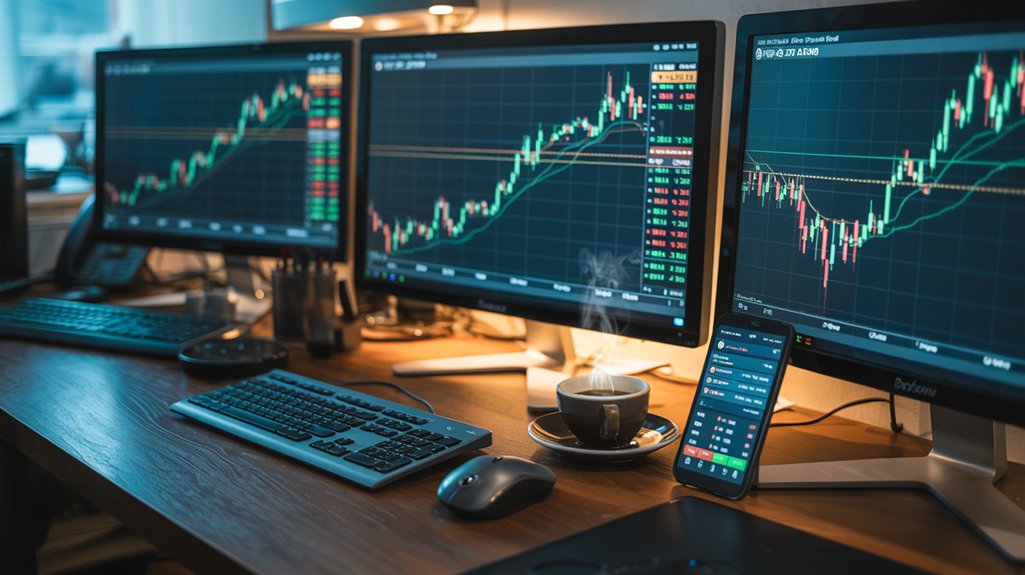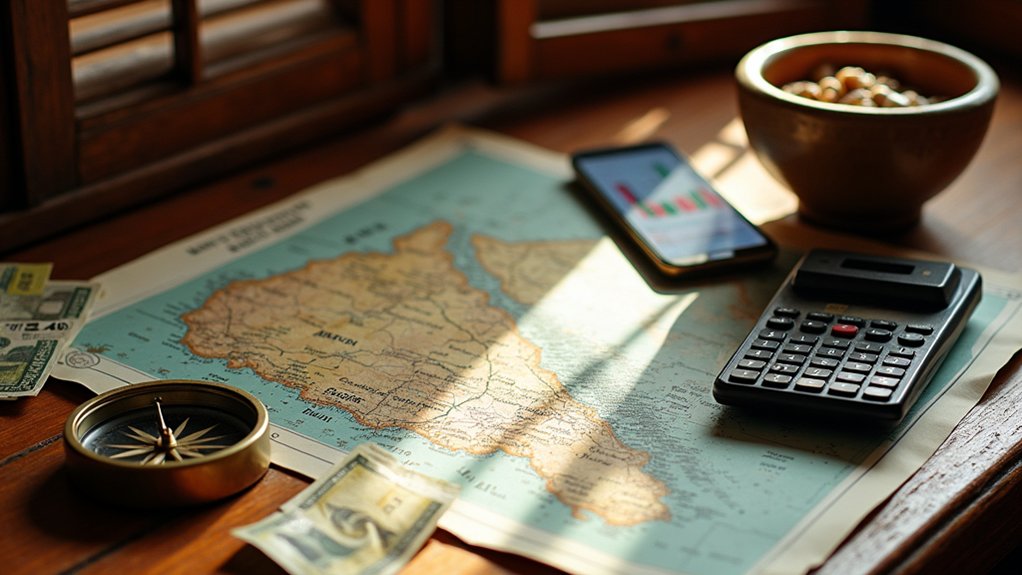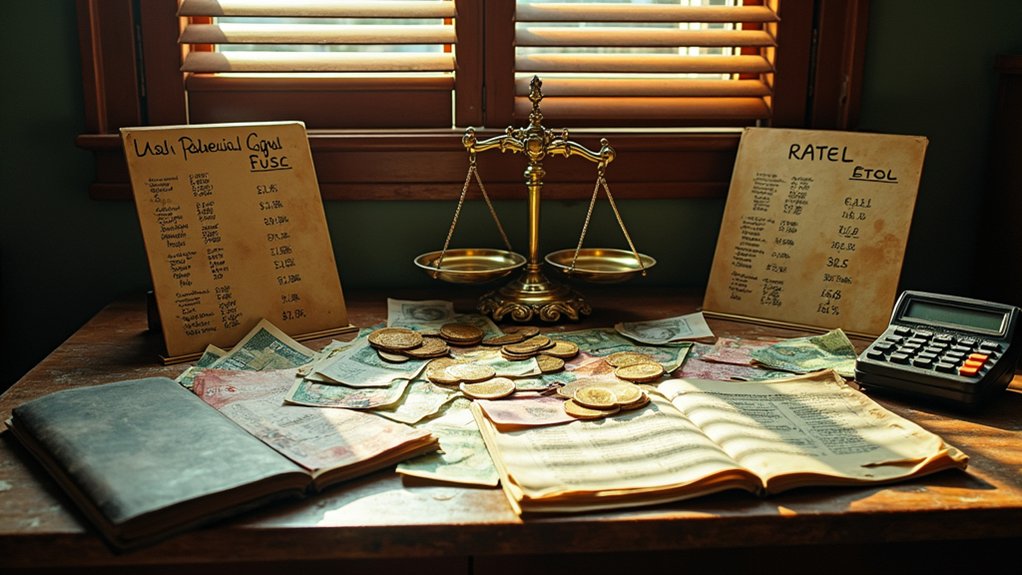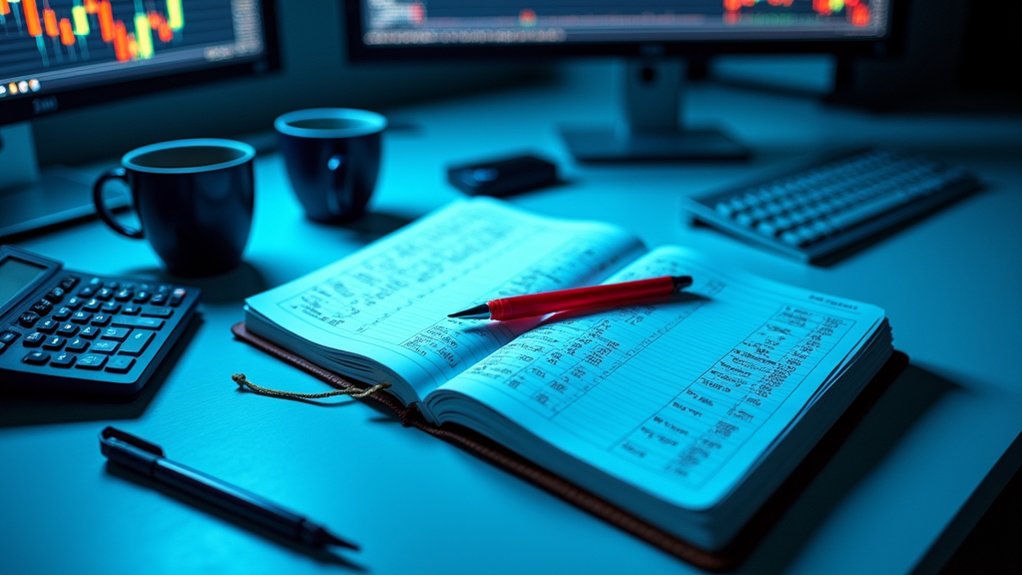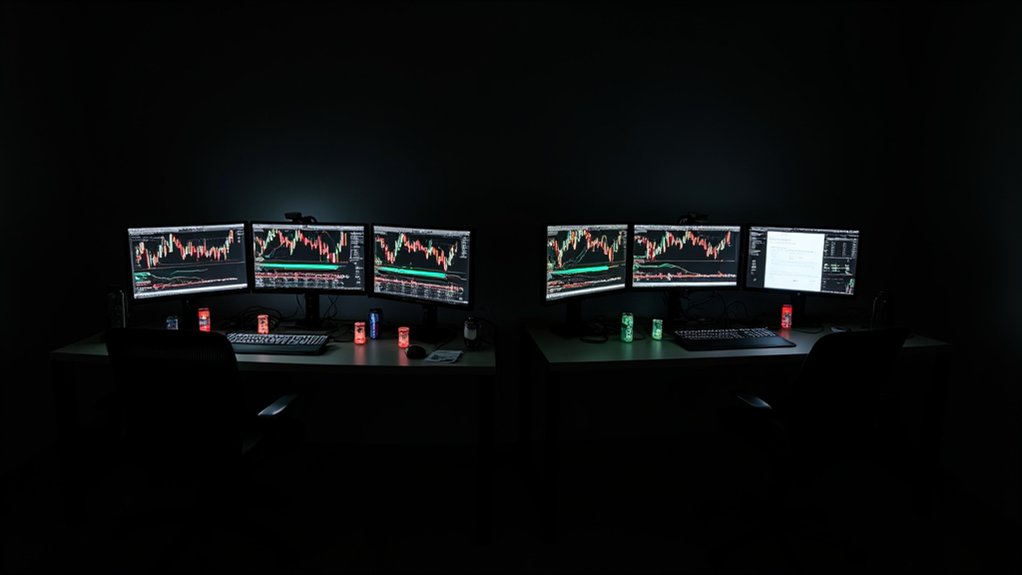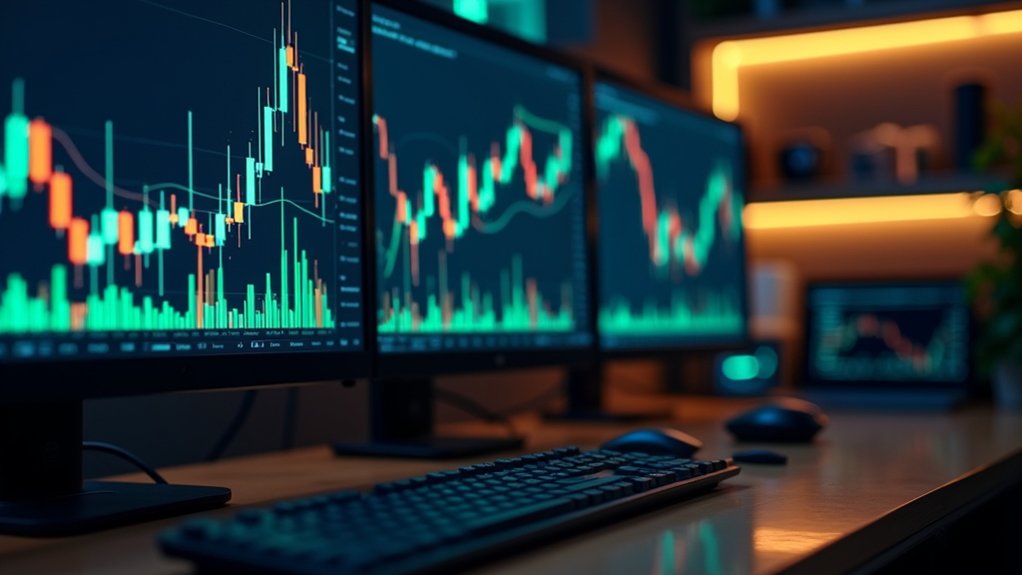South Africa's forex market churns through USD 2.21 billion daily with roughly 190,000 active traders, but here's the twist: direct currency trading is illegal for individuals under the Currency and Exchanges Act of 1933. Most locals trade CFDs through FSCA-regulated brokers instead, skirting around Exchange Control Regulations while dodging scammers who've ramped up fraud by 20–25% since COVID. The market operates nearly 24 hours, peak liquidity hits during London-New York overlap, and SARS taxes everything regardless of where the broker sits. What follows unpacks the mechanics, risks, and realities beneath the hype.
Quick Facts That Matter
- Direct currency trading is illegal for individuals; only SARB-authorized dealers may trade real forex under Exchange Control Regulations.
- Legal trading occurs through FSCA-regulated brokers offering CFD derivatives with 30:1 retail leverage caps since 2021.
- Market scams surged 20–25% post-COVID, with fraudsters promising unrealistic returns and blocking withdrawals up to R500,000.
- SARS taxes forex income up to 45% for frequent traders; capital gains treatment around 18% for patient investors.
- Youth trader activity increased 450% in two years despite operating in a market with over 40 FSCA warnings issued annually.
Overview: Forex Trading in South Africa

In the span of less than a decade, South Africa's forex market has transformed from a niche corner of finance into a roaring industry projected to hit USD 6,852.50 million by 2033. That's a 6.58% compound annual growth rate through 2033. The numbers tell the story: USD 2.21 billion traded daily, 190,000 active traders clicking away, over 1,000 financial firms scrambling for market share.
Youth traders aged 18-25 saw their activity spike 450% in two years. Brokers now advertise account minimums as low as R200. Trading apps sit in the top ten downloads.
Electronic platforms replaced old voice-based dealing, slashing costs and boosting transparency. The South African Rand became Africa's most traded currency. The country's role as sub-Saharan African financial hub drives strong trade flows and pulls growing investor interest from emerging market funds. The Financial Sector Conduct Authority oversees this expanding market, licensing forex brokers and ensuring standards that protect traders while maintaining market integrity. It's grown fast, messy, and loud.
Is Forex Trading Legal in South Africa?

All that growth, all those downloads, all those R200 minimum deposits—and here's the kicker: forex trading is illegal in South Africa.
The Currency and Exchanges Act, 1933, prohibits individuals from trading forex directly. Exchange Control Regulations restrict actual currency trading to authorized entities only. South Africans cannot speculate against the Rand. Period.
What about those offshore platforms everyone's using? They're operating illegally. No South African registration, no regulatory oversight, nothing. They exist beyond regulatory jurisdiction, functioning like online gambling platforms.
The legal alternative? CFDs and forex derivatives through FSCA-regulated brokers. These products reference currency movements without trading actual foreign currency. It's a workaround, technically compliant. South Africans can verify a broker's legitimacy by checking the FSCA website to confirm regulation under the FAIS Act.
Only Authorized Dealers appointed by SARB can trade real currency. SARB's monetary policy decisions directly influence Rand volatility and liquidity in the legitimate foreign exchange market. Everyone else is playing in grey zones or outright illegal territory.
Who Regulates Forex Trading in South Africa?

Given that forex trading itself sits in legal limbo, regulation becomes a contradiction wrapped in bureaucracy. The Financial Sector Conduct Authority—or FSCA—handles oversight. This government body, sitting under the Ministry of Finance, regulates brokerages, investment firms, and insurance companies across South Africa.
They issue Financial Services Providers licenses to forex brokers. License numbers appear on broker websites. Traders can verify legitimacy through the FSCA portal.
Since 2021, retail traders face a 30:1 leverage cap. Professional investors with deeper pockets get higher limits. Brokers must segregate client funds from their own accounts.
The FSCA monitors compliance continuously, enforcing fair execution standards and financial stability requirements. The South African Reserve Bank imposes Exchange Controls that govern foreign currency transactions and manage cross-border capital flows in and out of the country's forex markets. Transparency requirements exist too—clear disclosure of costs and risks. Brokers must maintain robust compliance systems including dedicated compliance officers and anti-money laundering procedures. It's regulation theater, but at least someone's watching.
How Forex Trading Works in South Africa
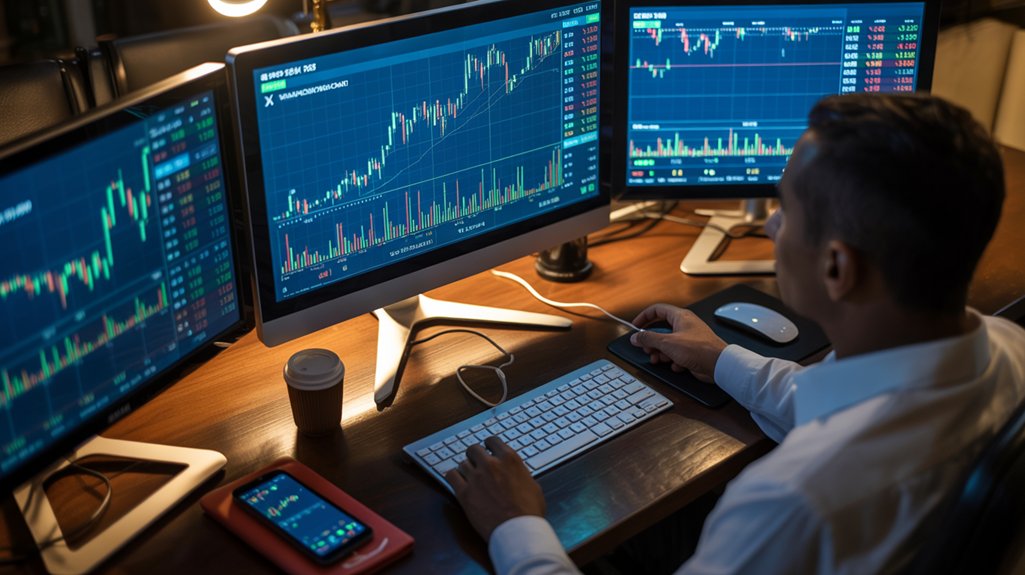
South African forex traders don't walk into a physical exchange to swap currencies like tourists at an airport booth. Everything happens online through platforms like MT4 or MT5.
The mechanics are straightforward: traders simultaneously buy one currency while selling another, hoping the exchange rate moves in their favor. No physical money changes hands. It's all CFD trading—contracts for difference—meaning traders speculate on price movements without owning actual currency. The spread (difference between buy and sell prices) is how brokers get paid. Traders pick a currency pair, analyze the market, decide if prices will rise or fall, then click buy or sell. The South African Rand is actively traded in global forex markets, making it accessible to local traders around the clock. South African retail traders need brokers or banks to access trading servers and leverage. Positions stay open until manually closed. Profits accumulate in real-time. Losses too.
Best Time to Trade from South Africa

Timing matters more than most beginners think. South African traders get active between 2:00 PM and 6:00 PM SAST when London and New York overlap—that's when liquidity peaks and spreads tighten.
The London session opens at 10:00 AM SAST, perfect for GBP, EUR, and ZAR pairs. New York kicks off at 3:00 PM SAST, bringing USD pairs to life. The Tokyo session starts at 2:00 AM SAST and dominates Asian market activity.
Tuesday through Thursday? Best days, hands down. Monday and Friday tend to drag with lower volatility.
Weekend trading exists for certain pairs like GBP/USD and EUR/USD, though it's mostly for hedging existing positions. The market runs 24 hours from 10:00 PM Sunday to 11:00 PM Friday in South African time.
Session overlaps create opportunities. Individual sessions offer consistency but less excitement. South African traders should pay special attention to the USD/ZAR exchange rate, which reflects the country's economic conditions and commodity prices.
Payments, Deposits and Withdrawals in South Africa
Getting money in and out of a forex account sounds simple until a South African trader hits their first deposit screen. Then the options multiply. EFT transfers remain the banking standard. Debit cards work. Visa, Mastercard—both accepted widely. Cryptocurrency enthusiasts can deposit Bitcoin, USDT, Ethereum, Litecoin, Ripple. E-wallets like Skrill and Neteller function smoothly. Ozow facilitates instant EFT transfers straight from local banks, cutting complications.
The ZAR versus USD account choice matters. ZAR-denominated accounts eliminate conversion fees. USD accounts access global liquidity with tighter spreads. Regulated brokers support instant ZAR deposits and withdrawals through local banks. Most platforms enable fast funding for rapid activation. Withdrawal speed varies by method, but competitive processing times persist. KYC procedures require valid identification—standard protocol nobody escapes. Traders examining regional markets often compare South Africa's payment infrastructure with other African financial hubs, where similar regulatory frameworks govern deposit and withdrawal procedures for retail forex participants.
Taxes, Reporting and Money Rules in South Africa
Nobody cheers when tax season arrives, but forex traders in South Africa face a particularly colorful puzzle. SARS doesn't care where the broker sits—every rand earned gets reported.
Trade frequently? Welcome to “trader” status, where profits get slammed with income tax rates climbing to 45%. Hold positions for months like a patient soul? Maybe, just maybe, capital gains treatment applies instead. That caps effective rates around 18%. Much better.
Frequent traders hit 45% income tax while patient investors cap out at 18% capital gains—timing changes everything.
Deductions exist—software, internet, even trading courses—but receipts matter. Broker bonuses count as taxable income too. Surprise.
And here's the kicker: provisional tax registration isn't optional for forex income. Miss those bi-annual payments and penalties pile up fast. Underestimation penalties can hit hard if your provisional payments fall significantly short of what you actually owe. Documentation protects everything. Keep those statements.
Understanding how central bank interventions influence exchange rates can also help traders anticipate market movements and plan their tax obligations more accurately.
Forex Trading Scams and Risks in South Africa
Unfortunately, South African forex traders swim in shark-infested waters.
Online trading scam inquiries jumped 20-25% since COVID-19 hit.
The FSCA issued over 40 public warnings this year alone.
South Africans lose millions of rands annually to fraudsters peddling Expert Advisor robots, fake signal services, and Ponzi schemes dressed up as legitimate trading operations.
Some victims reported losses approaching R500,000 across multiple scam companies.
Exential Group remains a textbook example of fraud disguised as forex trading.
Scammers impersonate legitimate firms like Altron TMT, Freedom Capital, and PSG Wealth on Telegram and WhatsApp.
They promise unrealistic returns, block withdrawals, manipulate platforms.
Fraudsters often demand fake withdrawal fees after victims attempt to access their supposed returns.
Brokers like FXC Markets, HQBroker, Brokerz, and AFX Capital operate unregulated or had licenses revoked.
Legitimate brokers maintain segregated client funds separate from operational capital, but unregulated operations often commingle or misappropriate trader deposits entirely.
Job losses and economic uncertainty created perfect hunting grounds for these predators.
Quick Q and A
Can I Trade Forex Part-Time While Keeping My Regular Job in South Africa?
Yes, individuals can trade forex part-time in South Africa while maintaining regular employment. The 24-hour market structure and flexible trading strategies accommodate working schedules, though traders must guarantee FSCA-licensed broker usage and implement proper risk management protocols.
What Minimum Amount Do I Need to Start Forex Trading in South Africa?
Some South African brokers accept deposits as low as $1-$10, but experienced traders recommend starting with $100-$500 (approximately R1,800-R9,000) to enable proper risk management and access all-inclusive trading tools effectively.
Which Forex Broker Do Most South African Traders Prefer and Why?
Most South African traders prefer Exness and HFM due to FSCA regulation, tight spreads, ZAR-denominated accounts, and local support. These brokers eliminate currency conversion costs while providing MetaTrader platforms and zero deposit/withdrawal fees in Rand.
How Long Does It Take to Become Profitable at Forex Trading?
Most South African retail traders require 3-5 years of consistent practice to achieve profitability. Approximately 85% of those dedicating over four years succeed, while only 20% show consistent profits within their first year of trading.
Can I Trade Forex Using My Smartphone Only in South Africa?
Yes, South African traders can trade forex exclusively via smartphone using platforms like MT4, MT5, AvaTradeGO, or HFM App. These applications offer full trading functionality, real-time alerts, account management, and secure EFT funding through local payment methods.
The Bottom Line
Forex trading in South Africa isn't illegal. It's regulated. Sort of. The FSCA watches some brokers while others operate offshore. Traders deal with deposit limits, SARS reporting, and platforms that crash at the worst moments. Tax season gets messy. Scams multiply faster than legitimate opportunities. Most retail traders lose money—that's just statistics, not pessimism. Anyone jumping in should know the mechanics, the costs, and the genuine risks. No sugar-coating needed.
